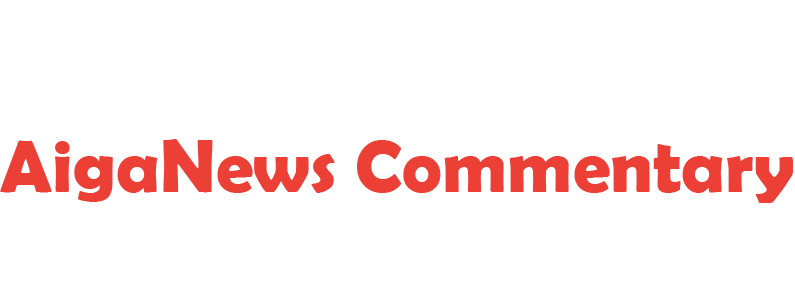06/20/2022
By Aesop
Nowadays, Tigreans are entertaining the possibility of negotiation. Well, the genocide has empowered Tigreans to decipher their enemies. Tigreans can now predict their enemies using the logical symbol known as negation. If their “confuse/convince” enemies talk about peace; they are likely preparing for war. However, not everyone has discovered this code (negation). There are many external actors who think the confuse/convince crew might have an ounce of integrity left in them. Tigrai should get along with negotiations talks, at least until everyone else wakes up to the convince/convince crew, as Tigrai, thanks to Alula campaign, has conquered a win-win status via war or peace; hence, the rationale to discuss negotiation. So, how can Tigai translate the talks about negotiation into an opportunity? I will drop my two cents on this issue.
Now, it is important to remember that negotiation is facilitated by third parties, not the conflicting parties. When third parties enter negotiation, they aspire to forge a positive sum result. It is important to remember these third parties are wasting their time and resources because they believe there is a light at the end of the tunnel. They believe conflicting parties could not only get but also thrive together. So, their goal is to facilitate a discussion where the conflicting parties could come up with a creative/novel solution that benefits both of them. The third parties want to expand the pie, not divide it up. When considering negotiation, Tigreans should consider the interest of not just their enemies but the goals of the third parties who chose to play referee.
The next step is for Tigrai to clearly outline its national interest. This transcends outlining “non-negotiable” points. One must have an agenda to discuss. This agenda is hails from a concrete national interest that addresses two key issues: 1) What are Tigrai’s security, economic, legal, and diplomatic interests? 2) how can Tigrai prioritize each in terms (along security, economic, legal, and diplomatic dimensions) in order of importance?
To break it down further:
2.1) Which ones of these is a matter of survival, i.e., a factor that Tigrai can’t do without? For example, its military.
2.2) Which ones of factors call for serious measures, like military action, to preserve the political and economic wellbeing of Tigrai? For example, its territorial integrity.
2.3) Which ones of these factors, unless addressed effectively, will descend into military confrontations? For example, referendum, accountability, and reparations.
2.4) which factors (security, economic, social, diplomatic) are expected in an ideal world?
For example, reconciliation, demarcation, and cooperation. Hence, the security, economic, legal, and diplomatic issues that may be listed under 2.1 and 2.2 are not up for negotiation, whereas agendas falling beneath (2.3) and (2.4) could be talked about in detail.
Surely, the examples I used above are hypothetical and, understandably, contentious. Tigrai’s government has the capacity to forge a comprehensive and solid national interest. The goal here is to show where national interest intersects with negotiation, i.e., systematically distinguish negotiable factors from non-negotiable terms. Here, negotiable factors are the factors that will, if left alone, will descend into conflict. Parties negotiate on items that, unaddressed, could lead to conflict. In this hypothetical example, I think Tigrai’s key points of negotiation are, referendum, accountability, and reparation, including long term reconciliation and cooperation.
Tigrai should marshal its rational (legal and moral grounds) and empirical (primary and secondary evidence) wherewithal to convince all parties (counterparts and facilitators) that things will descend into conflict unless a referendum is staged, accountability established, and reparations made. These, I think, are the core elements of negotiation. Once these major interests are addressed, Tigrai can also negotiate on peripheral interests, namely: how long-term peace, reconciliation, and multifaceted cooperation could be established. This is just a demonstration of how Tigrai can conduct a negotiation anchored on national interest for history shows a nation lacking a clear, systematic, and comprehensive national interest can not expect to prevail in negotiations.
To conclude, the recent talks over negotiation, I think, should be taken as an opportunity to forge a concrete national interest. Yet, they ought to be consumed with a grain of salt. Tigreans should never forget they are dealing with the “confuse/convince” crew that betrayed its fellow fascists- from Shaebia to Fano. Tigreans should continue relying on the “negation symbol” used in logic to predict its enemies’ next moves- pathological liars often preaching peace, while preparing for war. Yet, Tigreans should welcome the negotiation rumors as an opportunity to forge their national interest, serving as basis for negotiation. Accordingly, Tigrai’s diplomats should outline (at least covertly) not only the things they will not negotiate about but also the agendas they think are important talking about- always bearing in mind the interests of the third parties, not just conflicting parties. It is high time to break down Tigrai’s national interest into tangible items/a white paper. Tigrai should define its national interest (on paper) by employing state-of-art tools used in crafting national interest, adopt them to local context, and create a broad consensus around them. This will, in turn, spark a common purpose, based on reason/policy rather than rhetoric and take Tigrai a long stretch into the future.
